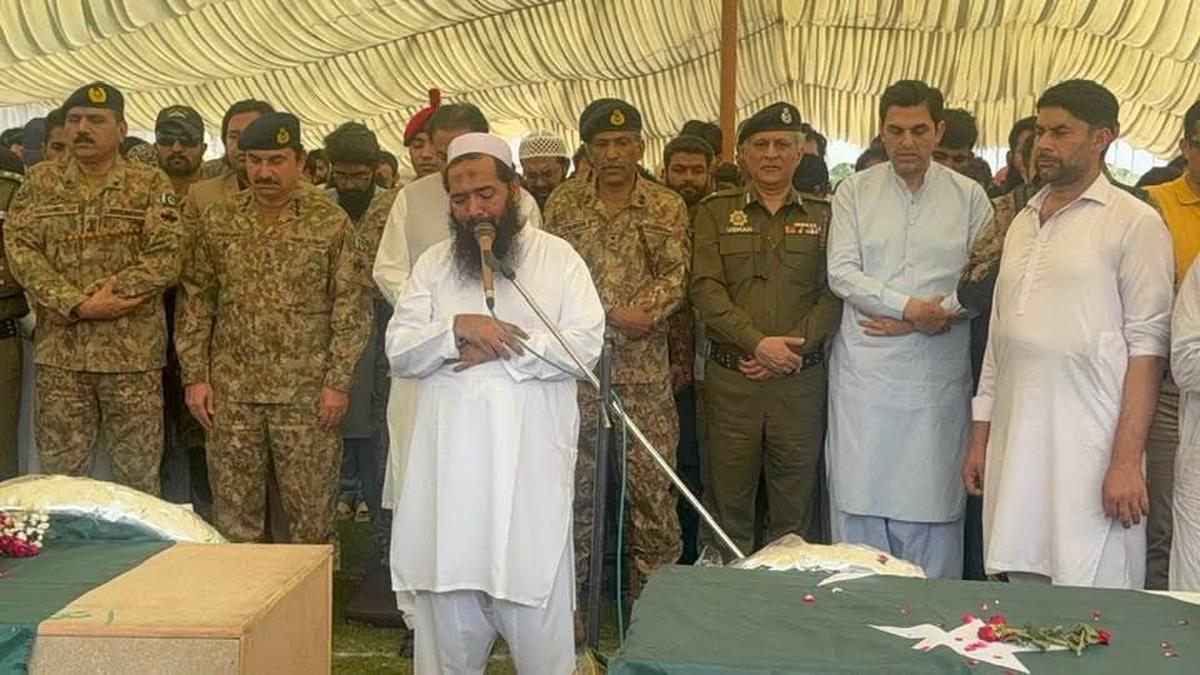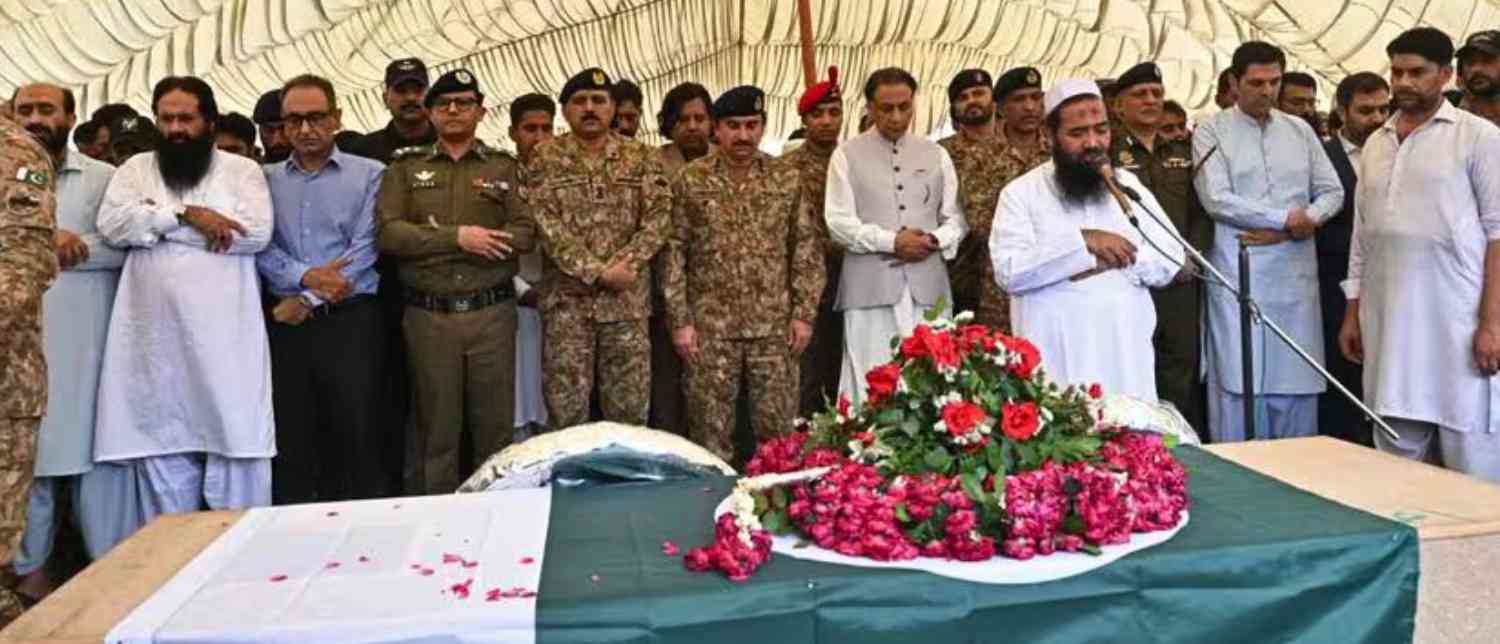In recent weeks, a series of videos have surfaced showing a Lashkar-e-Taiba (LeT) commander in Pakistan openly contradicting Pakistan’s official statements regarding the terror camps targeted during India’s Operation Sindoor. This Indian military operation, launched in early May 2025, aimed to dismantle terrorist infrastructure across Pakistan and Pakistan-occupied Kashmir (PoK) following a deadly terror attack in the Indian region of Jammu and Kashmir.

The leaked videos have shown the LeT commander standing amid the ruins of the Markaz-e-Taiba camp in Muridke, Punjab—a site reportedly destroyed during Operation Sindoor by Indian strikes. Contrary to Pakistan’s claim that the camp was no longer in use, the commander admitted that many terrorists were trained there and confirmed ongoing militant activities. This admission aligns with similar confessions earlier made by a commander from Jaish-e-Mohammed (JeM), another designated terrorist group.
Operation Sindoor was India's calibrated response to a terror attack by a Pakistan-based group, which killed 26 civilians in Pahalgam. India’s precision strikes targeted nine terror camps, including key bases linked to Lashkar-e-Taiba, JeM, and Hizbul Mujahideen, focusing strictly on terrorist training facilities rather than broader military targets. Yet, Pakistan has repeatedly denied the presence of such terror camps on its soil, leading to a heated information war on both sides.
🚨 🇵🇰👺 After Jaish commander ilyas kashmiri now Lashkar-e-Taiba Commander Qaasim has torn apart Pakistan’s lies on Muridke terror camps.
👉 Standing in front of the demolished Markaz E Taiba camp, which destroyed in #OperationSindoor, he admits that many terrorists… pic.twitter.com/S80p9wLSFy— OsintTV 📺 (@OsintTV) September 19, 2025
Pakistan’s official narrative has been challenged not only by video evidence from militant members but also by internal contradictions within its own government. For example, Pakistan’s Information Minister claimed there were no terror camps during a media interview, only to be fact-checked live against contradicting statements by his country’s own Defence Minister admitting the long-standing proxy policy supporting terror groups. Such contradictions fuel skepticism internationally about Pakistan’s public stance on counter-terrorism.
Adding complexity, reports indicate that Pakistan is quietly rebuilding the terror infrastructure dismantled during Operation Sindoor. Indian intelligence dossiers reveal financial aid from Pakistani sources is helping Lashkar-e-Taiba reconstruct its Muridke headquarters, aiming to reopen the facility by February 2026, coinciding with Kashmir Solidarity Day. While Pakistan maintains it fights terrorism, the open honours paid to terrorists killed during the strikes by top officials further complicate the perception of Pakistan’s counter-terrorism efforts.
The ongoing conflict between India’s strike claims and Pakistan’s denials highlights the challenges of addressing terrorism linked to cross-border disputes. The conflicting narratives and video evidence expose the difficulties in verifying facts on the ground amidst propaganda and political messaging. Both countries face internal and external pressures: India to secure its borders and respond to terror attacks, and Pakistan to manage international scrutiny and accusations of harbouring militant groups.
🇵🇰 𝐑𝐄𝐏𝐎𝐑𝐓 | LeT deputy chief and Pehelgam attack mastermind Saifullah Kasuri has issued a another threat from Pakistan, vowing 'revenge' against India.
Likely a per-recorded video from a safe location. He won't survive for long if he keep talking. https://t.co/QYp9V5rDJ7 pic.twitter.com/bCrCsslUvj— Conflict Monitor (@ConflictMoniter) September 17, 2025
The revelations from Operation Sindoor underscore the broader regional challenge—terrorism has become deeply entrenched in state and non-state dynamics, muddying efforts toward peace and stability. The rebuilding of terror camps and contradictory official claims highlight that military strikes alone may not suffice without concurrent political and diplomatic efforts addressing root causes.
In summary, recent Lashkar-e-Taiba commander videos rejecting Pakistan’s claims about the terror camp demolitions serve as a stark reminder of the complexity and enduring nature of terrorism issues in South Asia. Operation Sindoor’s military success in striking terror camps marks one tactical victory, but the struggle for lasting peace involves addressing the conflicting narratives, rebuilding efforts, and political will on both sides of the border. This situation urges a careful understanding beyond mere headlines, reflecting the nuanced realities that children or laypeople can grasp: that truth in conflicts is often layered, and peace requires more than isolated military actions.
Kudos to Indian military
Listen to our CDS reasoning why Op Sindoor started at 1:30 am 👇
Even during war India cared and protect Pakistan innocent civilians 👏👏
These are Bhartiya Principles
Vid From PTI pic.twitter.com/RlTNSrolTb— Soumya Tr!p@th! (@Tripth9991) September 19, 2025
This ongoing episode continues to draw attention globally, as observers watch closely to see whether claims translate into sustained actions against terrorism or remain entrenched in cycles of denial and reconstruction. The hope remains for transparency, accountability, and diplomatic dialogue in breaking these cycles for the betterment of the entire region.
With inputs from agencies
Image Source: Multiple agencies
© Copyright 2025. All Rights Reserved. Powered by Vygr Media.























